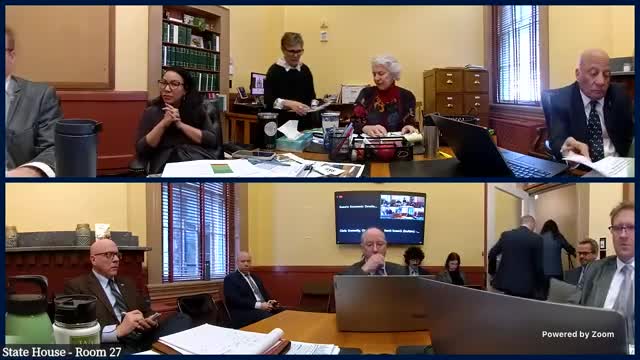Champlain Housing Trust expands shelter beds, motel conversions and development pipeline amid rising costs
Get AI-powered insights, summaries, and transcripts
Subscribe
Summary
Chris Donnelly of Champlain Housing Trust told the Senate committee that CHT owns roughly 220 shelter beds in Chittenden and Franklin counties, has about 200 homes under construction and is converting motels and brownfield sites into permanently affordable housing while noting sharply higher per‑unit costs since 2020.
Chris Donnelly, representing Champlain Housing Trust, told the Senate Committee on Economic Development, Housing & General Affairs that CHT has rapidly expanded shelter capacity, converted motels into apartments and is advancing a large development pipeline — while warning the committee that rising costs threaten future starts.
“For the record, Chris Connolly with the Champlain Housing Trust,” the witness said at the start of his remarks; he later described CHT’s work as serving “the whole continuum of housing needs,” from people experiencing homelessness to homeownership programs. Donnelly said CHT expects to own about 220 shelter beds in Chittenden and Franklin counties by the end of the month and that the agency recently converted motel units into apartments as a relatively low‑cost way to house people exiting unsheltered homelessness.
Donelly described earlier motel conversions that cost “a little bit over a $100,000 per unit” at the time and said conversion costs and new construction expenses have roughly doubled since 2020. He said the organization looks for ways to keep costs down, including combining motel rooms into apartment units and reusing existing structures.
CHT outlined several active projects and pipeline numbers during the testimony: - Brownfield cleanup and redevelopment in downtown Burlington: Donnelly said the organization expects to spend close to $2 million in Brownfields funds to clean a downtown site and build a five‑story project that will include 38 apartments, of which nine are for people exiting homelessness and five are for veterans. - A 94‑home Shelburne Road project: Donnelly said the development will include 68 apartments and 26 shared‑equity townhomes, with site infrastructure and multiple contractors involved; portions of the site are being renovated and other buildings reconstructed. - Multiple motel‑to‑apartment conversions and shelter acquisitions across the region, including a project with Steps that expanded shelter capacity from 7 to 21 rooms and other properties under renovation with service partners such as Spectrum and local domestic violence providers.
Donelly said CHT currently has about 200 homes under construction and 70–100 additional homes on the drawing board. He also said CHT holds roughly 685 shared‑equity homes in its portfolio and plays an active role in stewardship to keep those homes permanently affordable.
Donelly urged the committee to consider how limited public resources can be used to produce more units at lower cost, noting that locally delivered development, motel conversions and manufactured housing are among the levers available to expand supply quickly. He offered to return for a follow‑up briefing and to provide additional details on specific projects and cost drivers.
